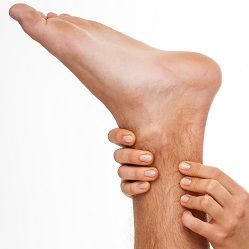Article
Study Offers New Treatment Possibilities for Rheumatic Pain Sufferers
Author(s):
Enthesitis refers to the instance of inflammation at the point where a tendon joins to a bone. Looking for further insight into the mechanisms behind inflammatory rheumatism, researchers from delved into the roots of Achilles enthesitis and may have emerged with a new approach to treating many rheumatic conditions.

Looking for further insight into the mechanisms behind inflammatory rheumatism, researchers from the Flanders Institute of Biotechnology in Belgium have delved into the problem of enthesitis, and they may have emerged with a new approach to treating many rheumatic conditions.
Enthesitis refers to the instance of inflammation at the point where a tendon joins to a bone. One of the most common forms is Achilles enthesitis. The researchers found that early in the development of this, macrophages (immune-supporting white blood cells) that lack the protein A20 begin to develop. A20 subdues the activation of a molecule called STAT1, which initiates inflammation. Macrophages lacking A20 appear thus to be a root cause of enthesitis.
STAT1, in turn, is controlled by another molecule called JAK. In the study, researchers were able to inhibit JAK, preventing the proliferation of STAT1 and treating Achilles enthesitis
These findings are important because they provide a new approach to a somewhat common issue. Around 1% of the population suffers from an enthesitis, and JAK inhibitors are already in use in many places for the treatment of rheumatoid arthritis.
Many other anti-inflammatory treatments utilize tumor-necrotic factor (TNF) inhibitors, but because the A20/STAT1/JAK train does not involve TNF, those treatments are not of use to all rheumatic pain sufferers.
Dirk Elewaut, one of the study’s authors, says in a press release that “"Our research opens up new prospects for patients in whom the existing TNF inhibitors offer no relief. In the first place, we wish to check whether this mechanism also plays a role in other places in the body, such as the spine.”
The team hopes that future research will help determine if JAK inhibitors can be of use to sufferers of other rheumatic conditions, like spondyloarthritis and psoriatic arthritis.





